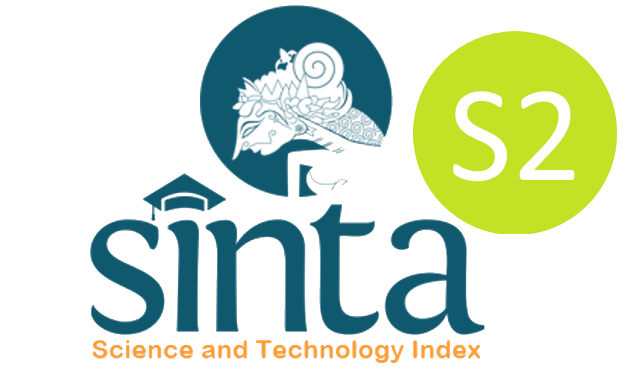Policies
Contents
- PRoUSt Manuscript Template
- Types of Articles
- Article Structure
- Submission Preparation Checklist
- Copyright Notice
- Privacy Statement
- Author Fees
- Who Can Submit?
- General Submission Rules
- Peer Review Process
- Publication Frequency
- Open Access Policy
- Publication Ethics
PRoUSt manuscript template
This document provides details on typesetting and layout requirements pertaining to final manuscript submission to Psychological Research on Urban Society: Download manuscript template
Types of Articles
Original Research Papers
present new empirical results contributing to theoretical, methodological, and/or applied advances (with a maximum length of 8,000 words, including references but excluding tables and figures). Articles longer than 8,000 words will be accepted on an occasional basis.
Research Notes
similar to original articles but shorter in nature (with a maximum length of 3,000 words, including references but excluding tables and figures).
Review Articles
summarize and integrate a clearly defined literature and make theoretical advances in this area (with a maximum length of 10,000 words, including references but excluding tables and figures). Articles longer than 10,000 words will be accepted on an occasional basis. Policy reviews fall in this category.
Case Studies
present good descriptions of experiences from particular contexts that allow lessons to be learned. It need not be a successful case, lessons can be learnt from failure. An article containing a case study should address the following questions: what are the context variables that made it a success or a failure; how can we transfer lessons from this case elsewhere. Case studies should be under 6,000 words, including references but excluding tables and figures.
Article Structure
Introduction
State the objectives of the work and provide an adequate background, with extended theories that lay the foundation for further work.
Methods
Provide sufficient detail to allow the work to be reproduced. Methods already published should be indicated by a reference: only relevant modifications should be described.
Results
Results should be clear and concise.
Discussion
This should explore the significance of the results of the work, not repeat them. A combined Results and Discussion section is often appropriate. Avoid extensive citations and discussion of published literature.
Submission Preparation Checklist
As part of the submission process, authors are required to check off their submission's compliance with all of the following items, and submissions may be returned to authors that do not adhere to these guidelines.
- The submission has not been previously published, nor is it before another journal for consideration (or an explanation has been provided in Comments to the Editor).
- The submission file is in Microsoft Word (.doc or .docx) document file format.
- The research meets the ethical guidelines, including adherence to the legal requirements of the study country.
- The manuscript is prepared with separate title page, minus acknowledgments and any running headers with author names, to allow blinded review.
- The text is double-spaced; uses Times New Roman 12-point font; employs italics, rather than underlining (except with URL addresses); and all illustrations, figures, and tables are placed at the end of the manuscript after the reference list. Cite each table at the most appropriate point in the text.
- The text adheres to the APA stylistic and bibliographic requirements outlined in the Author Guidelines, which is found in About the Journal.
- In-text citation and references must employ Reference Manager such as Mendeley. 80% of the cited works should be primary resources from the past 10 years.
Copyright Notice
Authors who publish with this journal agree to the following terms:
- Authors retain copyright and grant the journal right of first publication with the work simultaneously licensed under a Creative Commons Attribution License that allows others to share the work with an acknowledgement of the work's authorship and initial publication in this journal.
- Authors are able to enter into separate, additional contractual arrangements for the non-exclusive distribution of the journal's published version of the work (e.g., post it to an institutional repository or publish it in a book), with an acknowledgement of its initial publication in this journal.
- Authors are permitted and encouraged to post their work online (e.g., in institutional repositories or on their website) prior to and during the submission process, as it can lead to productive exchanges, as well as earlier and greater citation of published work (See The Effect of Open Access).

This work is licensed under a Creative Commons Attribution 4.0 International License.
Privacy Statement
The names and email addresses entered in this journal site will be used exclusively for the stated purposes of this journal and will not be made available for any other purpose or to any other party.
Author Fees
This journal charges the following author fees.
Article Submission: 0.00 (IDR)
Authors are not required to pay an Article Submission Fee as part of the submission process to contribute to review costs.
Article Publication: 0.00 (IDR)
If this paper is accepted for publication, you will not be asked to pay an Article Publication Fee to cover publications costs.
Who Can Submit?
Anyone may submit an original article to be considered for publication in Psychological Research on Urban Society provided he or she owns the copyright to the work being submitted or is authorized by the copyright owner or owners to submit the article. Authors are the initial owners of the copyrights to their works (an exception in the non-academic world to this might exist if the authors have, as a condition of employment, agreed to transfer copyright to their employer).
General Submission Rules
Submitted articles cannot have been previously published, nor be forthcoming in an archival journal or book (print or electronic). Please note: "publication" in a working-paper series does not constitute prior publication. In addition, by submitting material to Psychological Research on Urban Society, the author is stipulating that the material is not currently under review at another journal (electronic or print) and that he or she will not submit the material to another journal (electronic or print) until the completion of the editorial decision process at Psychological Research on Urban Society. If you have concerns about the submission terms for Psychological Research on Urban Society, please contact the editors.
Peer Review Process
The submitted manuscripts are first reviewed by an assigned editor. Every submitted manuscript which pass this step will be screened using iThenticate to identify any duplicated text or possible plagiarism before being sent to reviewers. This journal uses double-blind review process, involving in-country and international reviewers, to ensure the manuscript in review meets high quality standard. The acceptance criteria for all manuscripts submitted are the quality and originality of the research and its suitability with our readership. Final acceptance or rejection rests with the Editorial Board.
Publication Frequency
This journal is published twice a year on April and October.
Open Access Policy
This journal is an open access journal which provides immediate, worldwide, barrier-free access to the full text of all published articles without charging readers or their institutions for access. Readers have the right to read, download, copy, distribute, print, search, or link to the full texts of all articles in Psychological Research on Urban Society.







